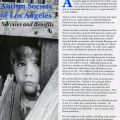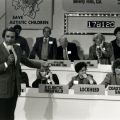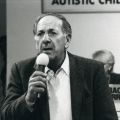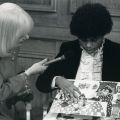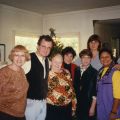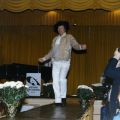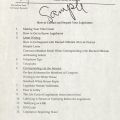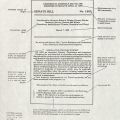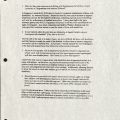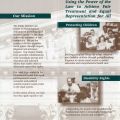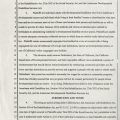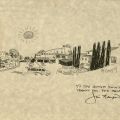Much of what we know about autism spectrum disorders (ASD) is due to the work of parental advocacy organizations. Connie and Harvey Lapin of Northridge became advocates for children and adults with autism after the diagnosis of their son, Shawn. Connie and Harvey have since dedicated over 45 years to improving the lives of those with autism and other developmental disorders. Their advocacy work is documented in the Harvey and Connie Lapin Collection in the University Library archives and serves to not only illuminate some of the history of autism services development in Southern California and beyond, but also as an example of leveraging the power of community activism to promote and protect services within the government such as the Education for All Handicapped Children Act (94-142). The collection contains legal documents and correspondence, documents regarding their work as activists, photographs, scrapbooks, audiovisual materials, and more.
Connie Lapin, a speech pathologist, has given numerous university lectures, appeared on multiple television programs, and testified before governmental bodies to promote improvements in care for the developmentally disabled. She filled advisory roles for California’s Department of Developmental Services, the Task Force on the Future of State Development Centers, and served as President of Protection and Advocacy, Inc. (now Disabilities Rights of California).
Dr. Harvey Lapin, a dental surgeon, served as a lecturer and author on disability awareness as well as president of multiple local and national organizations dedicated to the welfare of those with developmental disabilities, including the National Society for Autistic Children (NSAC), now known as the Autism Society of America, for which their son Shawn was the first poster child. In addition, Harvey helped found Jay Nolan Community Services and organized the Save Autistic Children telethon from 1977-1984. Together, Connie and Harvey have been recognized by the California State Senate and U.S. Presidents Carter and Reagan for their commitment to developmental disability research and services. 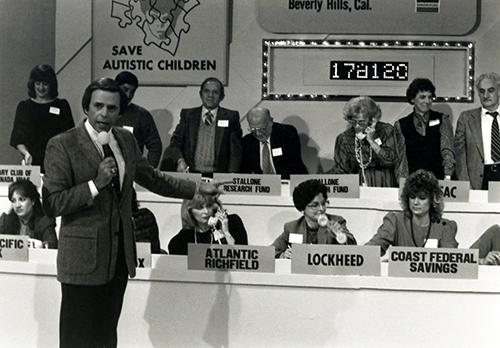
Harvey and Connie both served on the Board of Directors for the Autism Society of Los Angeles (ASLA), which was the local chapter of the Autism Society of America. The collection contains records, brochures, pamphlets, and photographs illustrating the history and work of the organization from 1969 to 2006. Under their direction, ASLA grew to be a model of effective advocacy, sponsoring community forums and conferences, as well as providing extensive outreach to the public. In addition to educational materials on autism awareness, the documents also detail how public policy is shaped through pressure aimed at legislators in order to achieve organizational goals. As a non-profit, ASLA sponsored numerous fundraisers in the form of luncheons, picnics, and even fashion shows. Among the most successful was the creation of the Save Autistic Children telethon first organized by Harvey in 1977, which featured numerous autism community members and celebrities such as Sylvester Stallone who is himself an autism advocate, and whose own organization worked directly with ASLA.
In 2000, with the assistance of counsel from the Public Interest Law Center of Philadelphia. The Lapins teamed with 5 other organizations and six individual plaintiffs who filed the case, Sanchez v. Johnson against California health, development and human services officials to compel them to equitably distribute federal Medicaid funds so that wages of skilled community service workers were in line with those of state developmental center employees. The suit was intended to address the issue of degrading services for, and discriminating against those with disabilities due to inadequate service. The case played out for several years, winning multiple challenges. However, in 2004, the Ninth Court of Appeals rejected the argument and ultimately deemed in its opinion that state distribution of federal Medicaid funds were not enforceable and that the law itself did not create enforceable individual rights.
Despite the disappointment with the court’s decision, the Lapins continued to work toward the betterment of the autistic community. In 2014, Harvey, through his work with state legislators, produced a successful bill to support self-determination of the developmentally disabled.
The dedication of the Lapins toward ADS awareness reflects how agency sometimes emerges from seemingly impossible challenges, and how the impulse to help oneself deal with these challenges becomes a catalyst to help the larger community.



